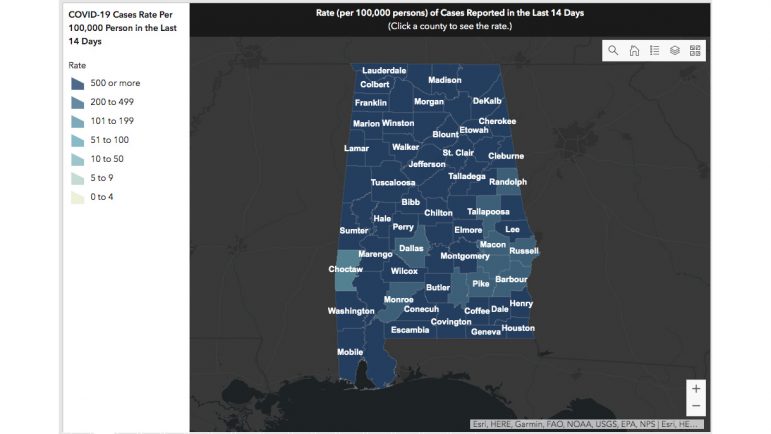Providers Plan For Vaccinating Millions of Rural Alabamians
Health experts are working to iron out the logistics of administering the COVID-19 vaccine in rural Alabama.
Depending on how you count it, UAB’s Dr. William Curry estimates anywhere from 1.25 to 2.9 million residents live in rural communities.
“So there are a lot of people and trying to vaccinate at least 70 or 80 percent of that large number is a very daunting task and we need to do it quickly,” said Curry, a physician and associate dean of primary care and rural medicine at UAB Medicine.
As Curry and other medical providers map out how to distribute the COVID-19 vaccine to the most isolated areas of the state, they face familiar problems.
There is a shortage of hospitals, clinics and staff to deliver the vaccine, plus a lack of infrastructure and resources to effectively store it. On top of that, Curry said many residents are reluctant to receive it.
In the coming months, UAB will work with the Alabama Department of Public Health and a network of rural providers to encourage vaccination. Health experts will reach out to local leaders, including sheriffs and pastors, to help spread the word about the risks and benefits of the COVID-19 vaccine.
“Education and community engagement is essential,” Curry said. “And people need to hear it from somebody like them, that they trust.”

In recent weeks, COVID-19 case numbers and hospitalizations have increased significantly across Alabama, with per-capita infection rates higher in many rural counties than they are in urban areas.
Curry said there is still not enough testing or contact tracing in rural communities, which makes it difficult to accurately monitor and control viral spread.
The first doses of the Pfizer COVID-19 vaccine began arriving Monday in Alabama, with additional shipments scheduled to arrive Tuesday. The initial allotment of 40,950 doses, prioritized for frontline health care providers, is being distributed to 15 hospitals with capacity for ultra-cold storage.
Trump warns Iran not to retaliate after Ayatollah Ali Khamenei is killed
The Iranian government has announced 40 days of mourning. The country's supreme leader was killed following an attack launched by the U.S. and Israel on Saturday against Iran.
Iran fires missiles at Israel and Gulf states after U.S.-Israeli strike kills Khamenei
Iran fired missiles at targets in Israel and Gulf Arab states Sunday after vowing massive retaliation for the killing of Supreme Leader Ayatollah Ali Khamenei by the United States and Israel.
House Dem. Leader Jeffries responds to air strikes on Iran by U.S. and Israel
NPR's Emily Kwong speaks to House Minority Leader Hakeem Jeffries (D-NY), who is still calling for a vote on a war powers resolution following a wave of U.S.- and Israel-led airstrikes on Iran.
Iran’s Ayatollah Ali Khamenei is killed in Israeli strike, ending 36-year iron rule
Khamenei, the Islamic Republic's second supreme leader, has been killed. He had held power since 1989, guiding Iran through difficult times — and overseeing the violent suppression of dissent.
Found: The 19th century silent film that first captured a robot attack
A newly rediscovered 1897 short by famed French filmmaker Georges Méliès is being hailed as the first-ever depiction of a robot in cinema.
‘One year of failure.’ The Lancet slams RFK Jr.’s first year as health chief
In a scathing review, the top US medical journal's editorial board warned that the "destruction that Kennedy has wrought in 1 in office might take generations to repair."




